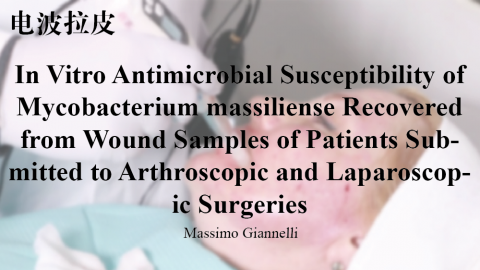
- 3636人
- 分享收藏
In Vitro Antimicrobial Susceptibility of Mycobacterium massiliense Recovered from Wound Samples
简介
【 文献重点摘要 】
Testing of rapidly growing species of mycobacteria (RGM) against antibacterial agents has been shown to have some clinical utility. This work establishes the MICs of seven antimicrobial agents following the guidelines set forth by the Clinical and Laboratory Standards Institute (CLSI) against eighteen isolates of Mycobacterium massiliense recovered from wound samples of patients submitted to minimally invasive surgery such as arthroscopy and laparoscopy. The isolates showed susceptibility to amikacin (MIC90= 4µg/mL) and clarithromycin (MIC90< 1µg/mL) but resistance to ciprofloxacin (MIC90> 16µg/mL), doxycycline (MIC90> 32µg/mL), sulfamethoxazole (MIC90> 128µg/mL), and tobramycin (MIC90= 32µg/mL), and intermediate profile to cefoxitin (MIC90= 64µg/mL). Therefore, we suggest that the antimicrobial susceptibilities of any clinically significant RGM isolate should be performed.
快速生长的分枝杆菌(RGM)对抗菌药物的药敏试验已被证明具有一定的临床应用价值。这项工作遵循临床和实验室标准研究所(CLSI)针对从接受关节镜和腹腔镜等微创手术的患者伤口样本中提取的18株马氏分枝杆菌制定的指南,建立了7种抗菌剂的最低抑菌浓度(MIC)。分离株对阿米卡星(MIC90=4µg/mL)、克拉霉素(MIC90<1µg/mL)敏感,对环丙沙星(MIC90>16µg/mL)、多西环素(MIC90>32µg/mL)、磺胺甲恶唑(MIC90>128µg/mL)、妥布霉素(MIC90=32µg/mL)耐药,对头孢西丁耐药(MIC90=64。因此,我们建议进行任何临床上有意义的RGM分离株的药敏试验。



